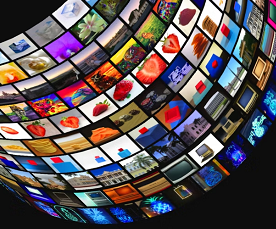IDCA News
All IDCA News
1 May 2023
ChatGPT and AGI as the Browser of a New Era
“(Generative AI) simplifies how we interact with what we think of as today’s applications,” write David C. Edelmanand Mark Abraham in a recent article in Harvard Business Review.
Building upon the traditional google searches we've become accustomed to over the past two decades, a fruitful AGI query can run along the lines of “'given the weather, traffic, and who I am with, give me a tourist itinerary for the afternoon, with an ongoing guide, and the ability to just buy any tickets in advance to skip any lines' or 'here’s my budget, here’s five pictures of my current bathroom, here’s what I want from it, now give me a renovation design, a complete plan for doing it, and the ability to put it out for bid,'” according to the authors.
AGI is thus viewed here in completely practical terms. No scary intelligence unblinkingly watching us as a prelude to exterminating us, no feared singularity, no building of a bigger human brain.
A similar view is showing up in many tweets, with people in essence saying “AI is just software,” and favoring the idea that we think of it as such, rather than a world-changing force. (You can search on Twitter for “just call AI software” to see what I mean.)
My recent personal experience with the star-of-the-moment ChatGPT syncs with this view. I was researching a useless sports trivia question over the weekend, trying to compare specific athletes from different eras in a fairminded way.
ChatGPT was able to summon up an amount of data in a few seconds that would have taken me a couple of hours. Yet, in its query it used several sources of information that had conflicting results; rather than tell me this, it tried to extrapolate or something, so gave me slightly different numbers each time I repeated a query.
When I pointed out the error of its ways, ChatGPT simply apologized and threw its figurative hands in the air, telling me this was a complicated task. Had I been trying to write a serious article or book on the topic, I would have had to extract the raw data the old-fashioned way, either by searching websites or (gasp) finding some print documents.
Clearly, ChatGPT cannot be trusted as a sole source for any rigorous data search just yet, whether one is trying to calculate the relative thermodynamics of different rocket designs or find the true airspeed of an unladen African swallow. I would not trust it at this point to give me a great tourist itinerary just yet, either. Better to rely on my own memories, books, and the opinions of friends.
Lest my view be perceived as Luddite thinking, we should remember that the Luddites have been misunderstood and slandered over the years. Their destruction of modern technology (woolen mills in the early 19th century) was because of the threat it caused to their jobs and, more important, the inevitable centralization of capital to which it would inevitably lead, thus reinforcing the “rich get richer while the poor get poorer” culture.
AGI doesn't yet threaten even more economic disparity, as far as I can tell, but its transgressions as an unreliable narrator make it unusable as anything but a novelist – and a poor one at that.
So we should continue to use it, on the hypothesis that it will get “smarter” over time, eventually improve search, and usher us into a long-awaited new era of the Web browser.
Image from OpenAI.com
Follow us on social media: